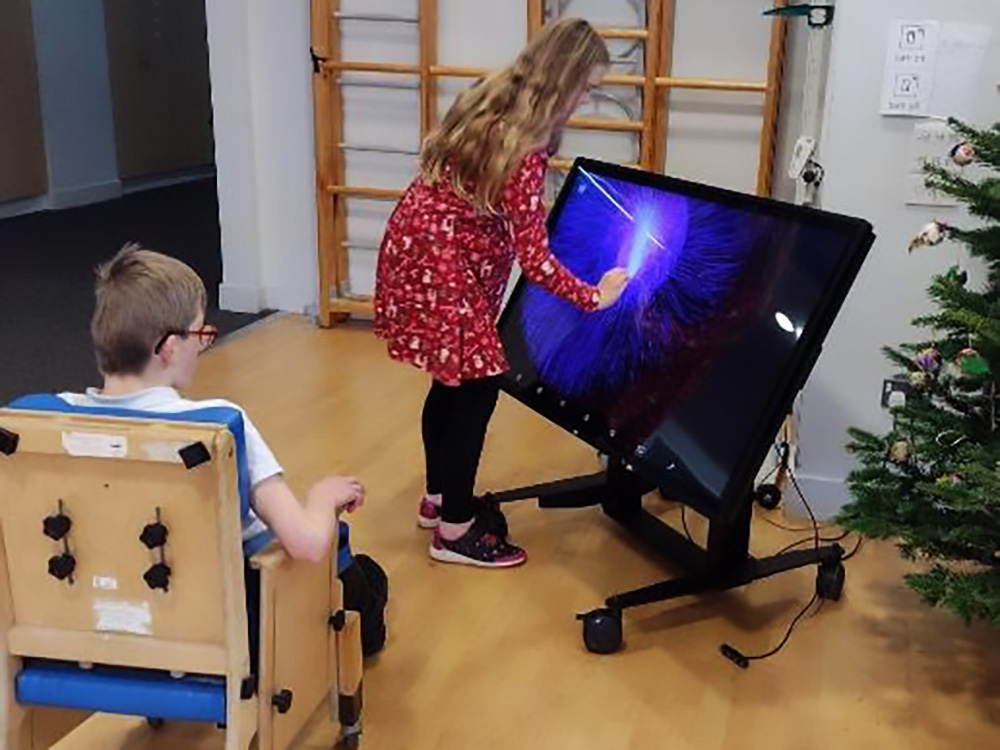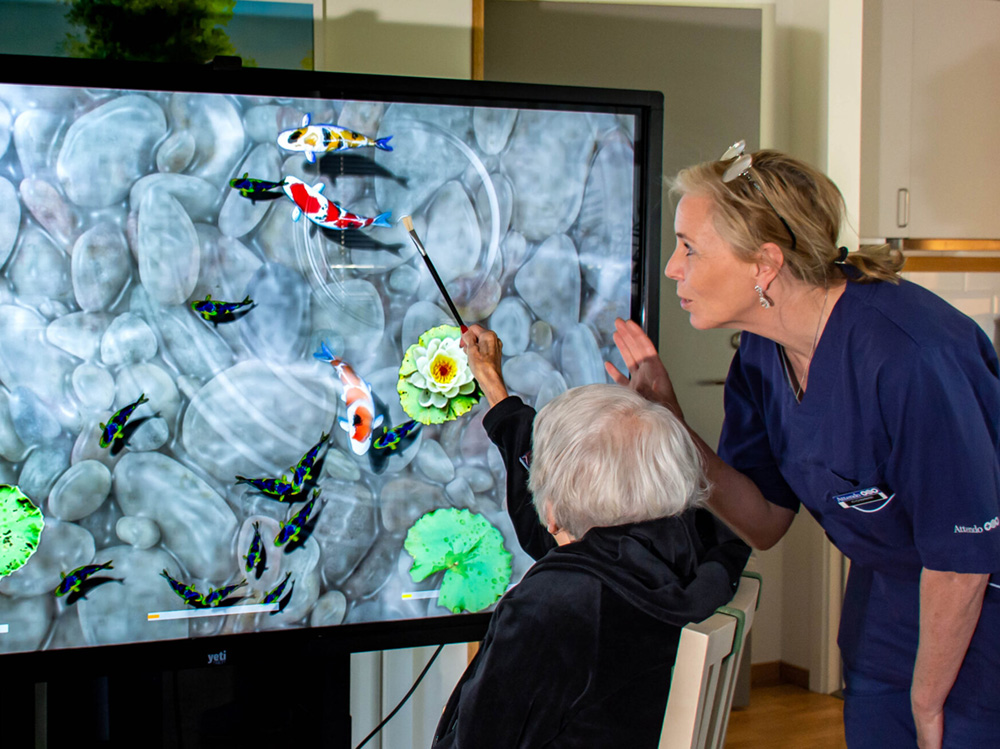Research
The impact of digital gaming on the health of older adults
Research
19.12.2024

The ageing population is growing and the number of people in long-term care is increasing. Many of these residents often have functional limitations, such as mobility problems and depression, which can lead to health problems and reduce quality of life. Research shows that older people living in long-term care facilities are more likely to have functional and cognitive impairments than their peers living independently. There are also indications that digital gaming can positively impact older people’s quality of life and functional capacity. This article discusses Saara Kukkohovi’s research findings on digital gaming among older adults, highlighting its potential role in enhancing health and well-being.
Why is digital gaming beneficial for older people?
Saara Kukkohovi, a PhD researcher at the University of Oulu, has studied the effects and benefits of digital gaming on older adults’s ability and activity levels. Digital gaming has its roots in youth entertainment, but it can offer new ways to support the social and cognitive well-being of older adults. Research shows that older adults can benefit enormously from digital gaming. Digital games offer a different and fun way to maintain older people’s physical activity, social life, cognitive functions, and general functioning.
Lack of physical activity in older people is often associated with reduced physical and mental functioning. Even light activity has a positive impact on physical functioning and ability to cope with daily tasks. Playing digital games that train balance, coordination and physical activity has been shown to positively impact both physical and mental functioning in older adults, including reducing the experience of depression and improving balance.
Residents of nursing homes often face many barriers to physical activity, which can contribute to their motivation and opportunities to exercise. To be motivating, physical activity should be fun, enjoyable and social. Digital gaming enables these dimensions.
Also, older adults often find digital games more motivating and entertaining than conventional physical activities. Several studies have shown that digital games can significantly improve the quality of life of older people.
Kukkovi’s study indicates that digital games can provide older adults with both enjoyment and therapeutic benefits. Among other things, games can refresh memory, improve concentration and support motor skills. In addition, digital gaming provides a sense of community, especially when played with others. This can help combat feelings of loneliness and strengthen the experience of belonging.
Games for older adults are often easy to use and simple, making them accessible and approachable for less technologically oriented people. Games can take the form of memory games, trivia games or a variety of problem-solving exercises that activate the mind and keep the brain alert.
Digital skills as the key to digital inclusion
While the benefits of digital gaming are clear, Kukkohovi’s research has also identified challenges. It is essential to identify the barriers that may make it difficult for older people to integrate digital gaming into their everyday lives. Fear of technology can be a barrier, especially among care staff. Attitude change, encouragement and digital skills are needed to open the digital world to all.
Kukkohovi’s research has found that older people will embrace technology and get excited if they have the support and encouragement of a professional. The study also emphasises the importance of providing sufficient guidance and opportunities to explore games at a relaxed pace when introducing technology. Utilising games in nursing homes or various communities for older adults could improve their accessibility to the digital world.
YetiCare opens up the world of digital gaming to older adults
Kukkohovi’s systematic review reveals new perspectives on digital gaming for older people and its potential to support well-being. Digital gaming is no longer just a hobby for young people but can offer various benefits for older adults. The key is to provide support and encouragement to enable older people to find meaningful digital experiences that positively impact their health.
This research provides valuable insights for care professionals on how games for older adults can be integrated into activities that promote holistic well-being. It will also support our ongoing efforts to promote digital inclusion for this demographic.
YetiCare’s content is specifically tailored to meet the needs of older adults, ensuring versatile use in various care environments. For example, games for people with memory problems help maintain cognitive functions, while games for physical activity provide a motivating way to exercise. Learn more.
Read Saara Kukkohovi’s systematic review and meta-analysis on digital gaming for older people in full HERE
Source: Kukkohovi S, Siira H, Arolaakso S, Miettunen J & Elo S (2023) The effectiveness of digital gaming on the functioning and activity of older people living in long-term care facilities: a systematic review and meta-analysis. Aging clinical and experimental research 35: 1595–1608
The benefits of digital gaming in a nutshell
Cognitive benefits:
Memory and concentration can be improved and maintained through games.
Keeps the mind active.
Social benefits:
Group games can improve community and interaction.
Playing together can reduce feelings of loneliness and social anxiety.
Social networking and social interaction can be maintained and new acquaintances made while playing games.
Physical benefits:
Motor skills can be maintained or improved = fewer falls.
Physical games can be used to increase physical activity.
Mental well-being:
Depressive feelings are reduced, leading to an improvement in mood.
Finding new hobbies adds to the joy of life.
Contact us for more information
More studies


